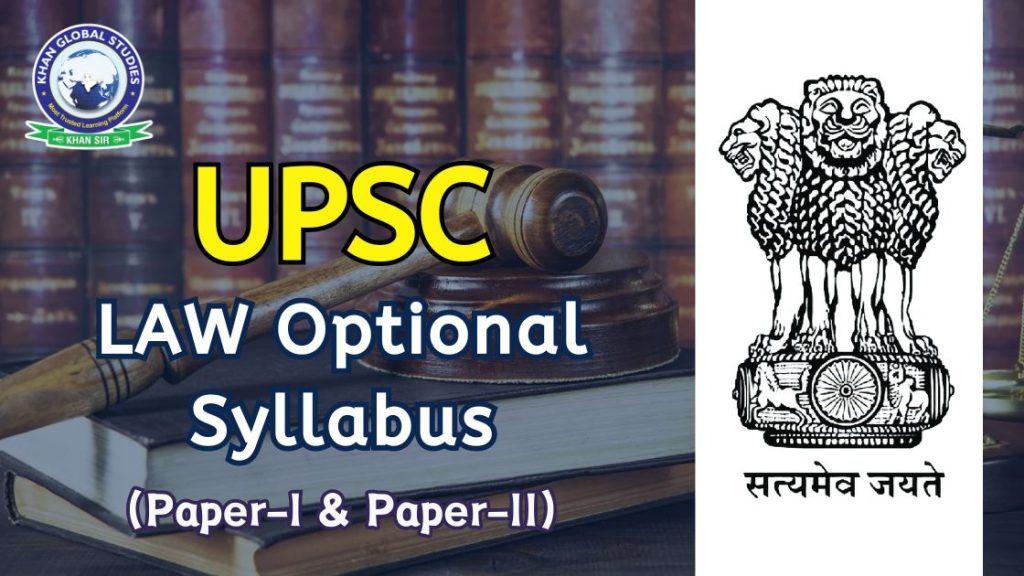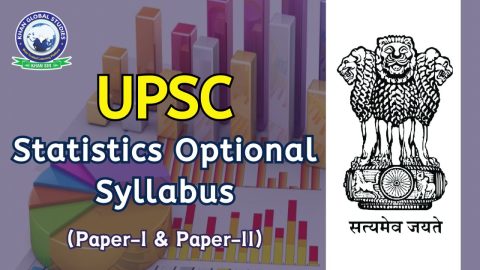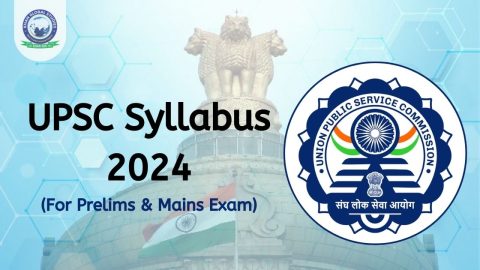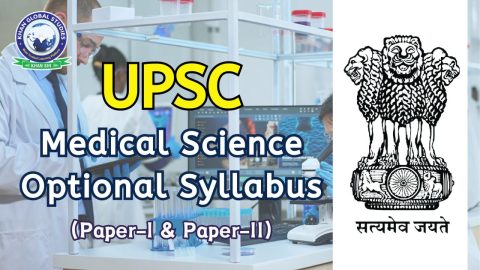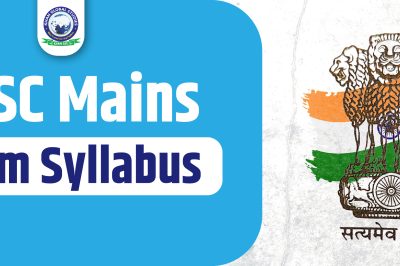The UPSC optional syllabus of Law consists of two papers, Paper I and Paper II, each carrying a weightage of 250 marks. Both the papers are divided into different sections, and candidates must choose one subject from each section. Let us look into the details of each paper.
UPSC IAS Law Optional Syllabus
Law as an optional subject is generally considered simple and easy to understand. Law has abundant reading material available. Studying Law Syllabus will be beneficial for both your UPSC Interview and Essay. It also has a lot of overlapping syllabi for General Studies papers, making it a beneficial optional subject.
| UPSC Law Syllabus | Topics |
| Paper I | Constitutional and Administrative Law International Law |
| Paper II | Law of Crimes Law of Torts Law of Contracts and Mercantile Law Contemporary Legal Developments |
UPSC Law Optional Syllabus for Paper I
Constitutional and Administrative Law
- Constitution and Constitutionalism: The distinctive features of the Constitution
- Fundamental Rights—Public interest litigation; Legal Aid; Legal services authority.
- Relationship between Fundamental rights, Directive principles and Fundamental duties.
- Constitutional Position of the President and Relation with the Council of Ministers.
- Governor and his powers.
- Supreme Court and the High Courts: (a) Appointments and transfer, (b) Powers, functions and jurisdiction.
- Centre, States and local bodies: (a) Distribution of legislative powers between the Union and the States. (b) Local Bodies. (c) Administrative relationship among Union, State and Local Bodies. (d) Eminent domain-State property-common property-community property.
- Legislative powers, privileges and immunities.
- Services under the Union and the States: (a) Recruitment and conditions of services; Constitutional safeguards; Administrative tribunals. (b) Union Public Service Commission and State Public Service Commissions—Power and functions. (c) Election Commission—Power and functions.
- Emergency provisions.
- Amendment of the Constitution.
- Principle of Natural Justice—Emerging trends and judicial approach.
- Delegated legislation and its constitutionality.
- Separation of powers and constitutional governance.
- Judicial review of administrative action.
- Ombudsman: Lokayukta, Lokpal etc.
International Law
- Nature and Definition of International Law.
- Relationship between International Law and Municipal Law.
- State Recognition and State Succession.
- Law of the Sea: Inland Waters, Territorial Sea, Contiguous Zone, Continental Shelf, Exclusive Economic Zone and High Seas.
- Individuals: Nationality, statelessness; Human Rights and procedures available for their enforcement.
- Territorial jurisdiction of States, Extradition and Asylum.
- Treaties: Formation, application, termination and reservation.
- United Nations: Its principal organs, powers and functions and reform.
- Peaceful settlement of disputes—different modes.
- Lawful recourse to force: aggression, self-defence, intervention.
- Fundamental principles of international humanitarian law—International conventions and contemporary developments.
- Legality of the use of nuclear weapons; ban on testing of nuclear weapons; Nuclear nonproliferation treaty, CTST.
- International Terrorism, State-sponsored terrorism, Hijacking, International Criminal Court.
- New International Economic Order and Monetary Law: WTO, TRIPS, GATT, IMF, World Bank.
- Protection and Improvement of the Human Environment: International Efforts.
UPSC Law Optional Syllabus for Paper II
Crimes’s Law
- General principles of Criminal liability: mens rea and actus reus, mens rea in statutory offences.
- Kinds of punishment and emerging trends as to abolition of capital punishment.
- Preparations and criminal attempts.
- General exceptions.
- Joint and constructive liability.
- Abetment.
- Criminal conspiracy.
- Offences against the State.
- Offences against public tranquility.
- Offences against the human body.
- Offences against property.
- Offences against women.
- Defamation.
- Prevention of Corruption Act, 1988.
- Protection of Civil Rights Act, 1955 and subsequent legislative developments.
- Plea bargaining.
Law of Torts
- Nature and definition.
- Liability based upon fault and strict liability; Absolute liability.
- Vicarious liability including State Liability.
- General defences.
- Joint tort lessors.
- Remedies.
- Negligence.
- Defamation.
- Nuisance.
- Conspiracy.
- False imprisonment.
- Malicious prosecution.
- Consumer Protection Act, 1986.
Law of Contracts and Mercantile Law
- Nature and formation of contract/E-contract.
- Factors vitiating free consent.
- Void, voidable, illegal and unenforceable agreements.
- Performance and discharge of contracts.
- Quasi-contracts.
- Consequences of breach of contract.
- Contract of indemnity, guarantee and insurance.
- Contract of agency.
- Sale of goods and hire purchase.
- Formation and dissolution of the partnership.
- Negotiable Instruments Act, 1881.
- Arbitration and Conciliation Act, 1996.
- Standard form contracts.
Contemporary Legal Developments
- Public Interest Litigation.
- Intellectual property rights—Concept, types/prospects.
- Information Technology Law including Cyber Laws—Concept, purpose/prospects.
- Competition Law—Concept, purpose/prospects.
- Alternate Dispute Resolution—Concept, types/prospects.
- Major statutes concerning environmental law.
- Right to Information Act.
- Trial by media.
Tips to Prepare Law Syllabus for UPSC 2024
- Understand the syllabus: Start by reading and understanding the UPSC syllabus for law thoroughly. This will give you a clear idea of the topics and subtopics that you need to cover. Pay attention to the importance given to different periods, subjects, and areas of study.
- Make Notes: Make concise and organised notes while studying. Write down important facts, dates, events, and key concepts. These notes will serve as quick revision material closer to the exam and help you remember important points.
- Analyze Previous Years’ Question Papers: Go through previous years’ question papers of the UPSC exam and analyze the pattern and type of questions asked from the law section. This will let you know about the expectations of the examiners and help you prioritize your preparation accordingly.
- Focus on conceptual understanding: Rather than memorizing facts and dates, focus on understanding the concepts, causes, and consequences of historical events. Develop a holistic understanding of the topic by linking different periods and topics together.
- Practice Answer Writing: law is a topic that requires effective presentation skills. Practice writing answers regularly to improve your writing style, coherence and clarity. Work on structuring your answers, providing relevant examples, and including a historical perspective.
- Stay Updated: Keep yourself updated with current events, especially those related to law. Read newspapers, magazines, and online sources to keep informed about recent archaeological discoveries, historical debates, and new interpretations of historical events.
- Revision Regularly: Allot enough time for regular revision. Revise your notes, important dates and key concepts frequently to ensure knowledge retention.


